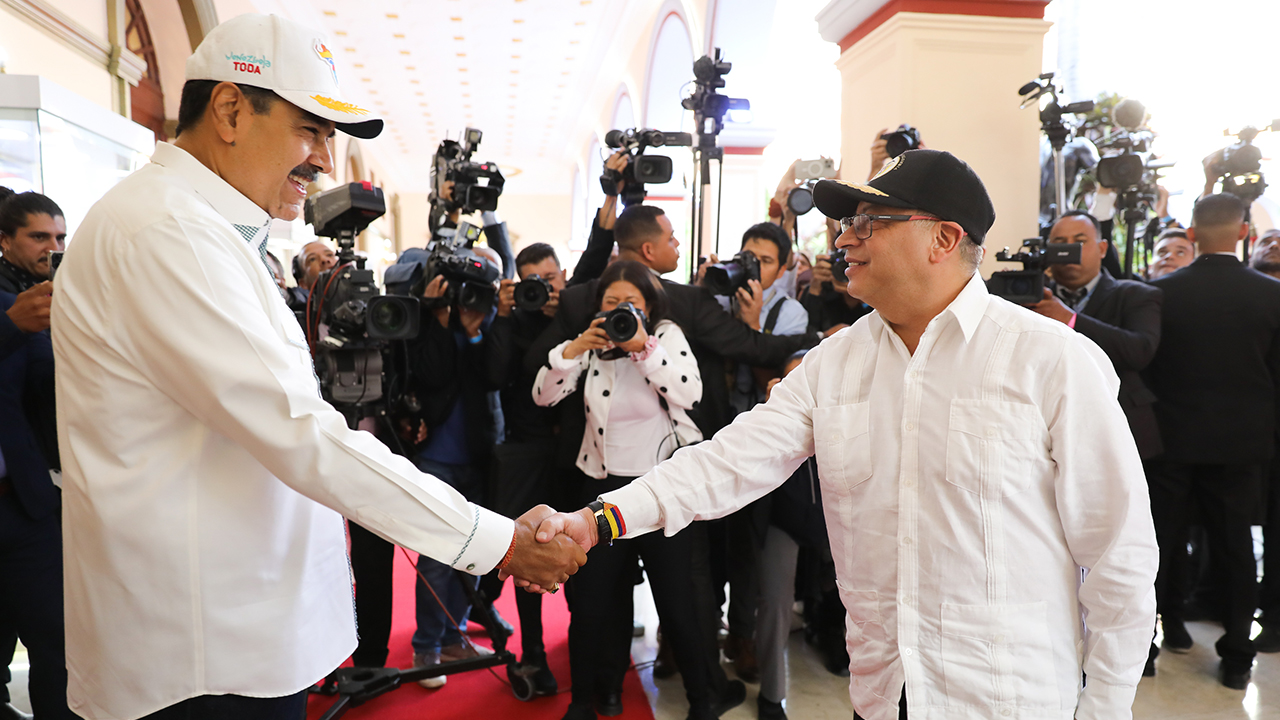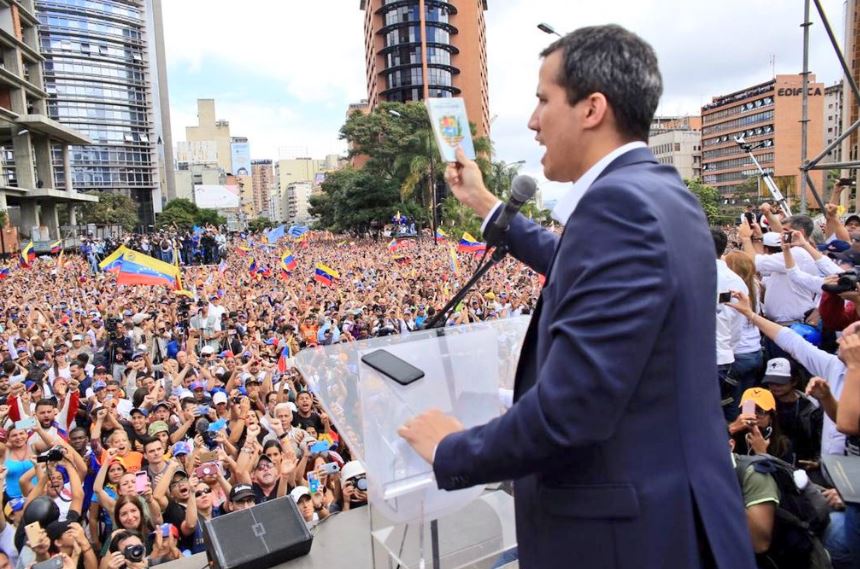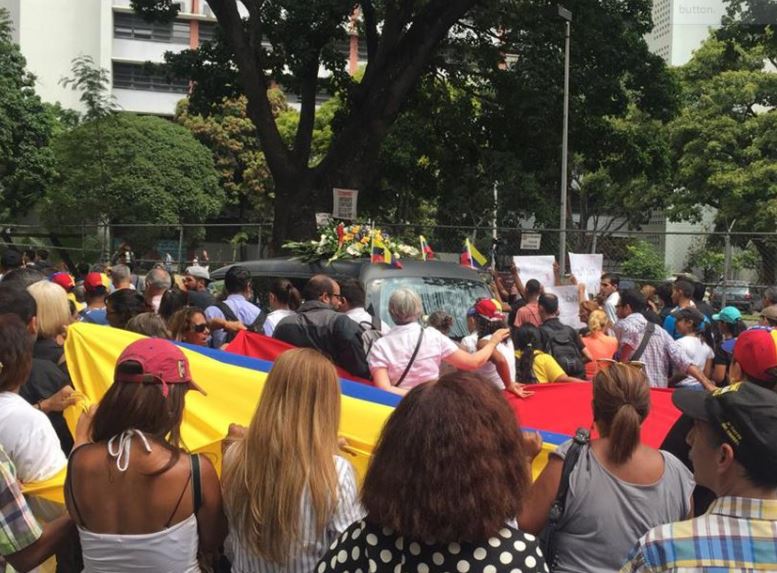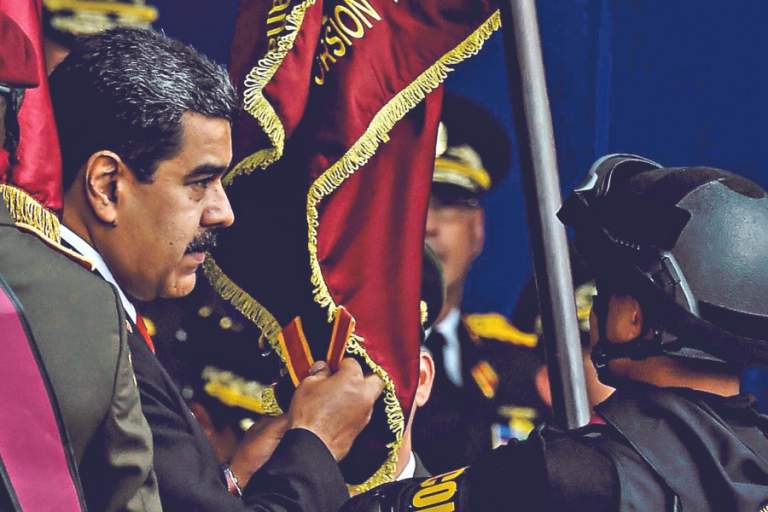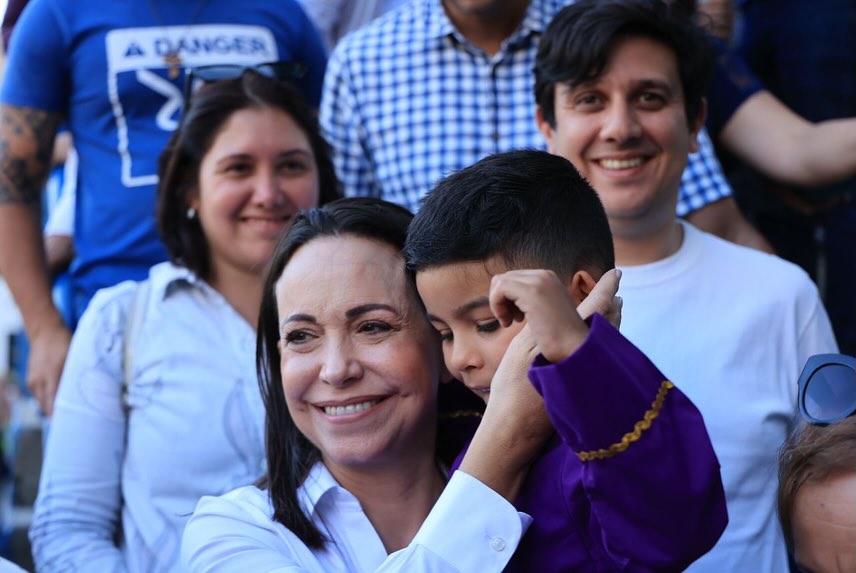During his first visit to Venezuela as president of Colombia in 2022, Gustavo Petro said that “the friendship of the two peoples must be maintained, no matter what,” in a message that was also aimed at the presidency of Ivan Duque, recognized for his controversial statements against the neighboring country. “It is a reconciliation,” said Nicolás Maduro.
Almost a year after their first visit, both presidents are meeting for the sixth time, this time to put an end to a few weeks of estrangement marked by Petro, who called the disqualification of opposition candidate María Corina Machado from the Venezuelan presidential elections, scheduled for July, an “anti-democratic coup”.
María Corina Machado, the former legislator who obtained 93% of the opposition votes in this year’s primaries, has been banned from running for the Presidency of the Republic. Venezuela’s Supreme Court of Justice made the decision to uphold a ban preventing Machado from holding office, putting an end to her plans for the 2024 elections.
The meeting also coincided with the celebration taking place on April 9th, the anniversary of the assassination in Bogotá of Colombian liberal leader Jorge Eliécer Gaitán in 1948, a politician Maduro praised a year ago as a “symbol of the struggles for the dignity of humble peoples”.
The rapprochement between Colombia and Venezuela, a process that has been forged through two previous trips by Petro to Caracas and several presidential summit meetings, froze several weeks ago due to calls made from Bogota, initially by Colombian Foreign Minister Luis Gilberto Murillo, to promote free, fair and competitive elections in Venezuela.
Other countries such as Brazil have also spoken out following the Maduro government’s backtracking on the electoral commitments signed last year in Barbados. The Venezuelan government has not only disqualified Machado, but has also prevented the registration of her designated replacement, academic Corina Yoris, and imprisoned prominent members of her party, Vente Venezuela.
A necessary partnership
When Petro was elected as president of Colombia, ambassadors to both countries were reappointed and a border that has witnessed the passage of several million Venezuelan migrants over the past decade was formally reopened. At the same time, Maduro also regained relevance on the world stage after several years of diplomatic and economic isolation due to Venezuela’s authoritarian drift.
The relationship between the two presidents is necessary. On the one hand, between 2022 and 2023, Petro tried to lead the search for a solution to the Venezuelan conflict through efforts to resume the stalled talks between Maduro’s government and the opposition Unitary Platform, which eventually led to the Barbados agreement. A year ago, Petro organized an international conference to discuss the problems arising from the protracted Venezuelan crisis.
On the other hand, for Colombia, Venezuela’s participation in negotiations with the ELN, one of the guerrilla organizations still in a country that has suffered decades of internal armed conflict, has been fundamental. The talks, which began in Caracas, have produced concrete results, such as a temporary ceasefire.
However, they are progressing slowly and without producing widespread enthusiasm in a society that sees the conflict worsening amid the proliferation of armed groups and Petro’s ambitious policy of negotiating with all of them in parallel. This month, from April 12th to 22nd, talks will resume in Venezuela’s capital.

According to Petro, his visits to the neighboring country are also related to economic alliances. The president said that an energy agreement was consolidated, which consists in the possibility that “Ecopetrol may exploit gas in the border near Colombia, in the Colombian-Venezuelan border, and oil in high quality conditions, closer to that of Norte de Santander. And that we can export electric energy, hopefully clean, through La Guajira and through Táchira”, he said.
One of the main attractions and commitments of the reactivation of relations was trade, which peaked between the two countries in the 1990s. Although the opening of the border in September 2022 triggered the exchange of some $143 million USD during the following year, it is still far from the records set decades ago.
During the meeting, the Colombian minister also announced that Maduro’s government has proposed that Colombia act as an “electoral observer” in the July elections. So far, there has been no definitive response from Petro’s government.

